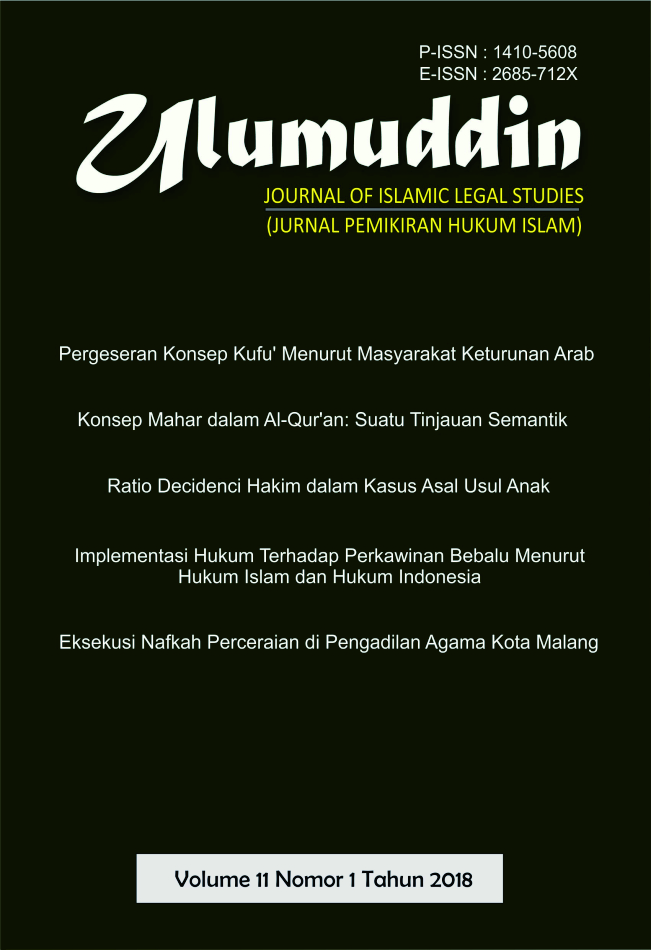Ratio Decidendi Hakim dalam Kasus Asal Usul Anak
DOI:
https://doi.org/10.22219/ulumuddin.v11i1.10407Keywords:
Ratio decidendi, illegal marriage, isbath, legalisation of the parental origin of the children, legal recognition, discrimination, human rights of childrenAbstract
Studying conducted by the Indonesian Child Protection Commission (KPAI) depicts that illegal marriage is one of significant factors causing the neglect of children in
the country. The government attempts to solve the problem through the way of isbath (the legal procedure to register a marriage in the governmental authority) and stating a legalisation of the parental origin of the children. This way is important in order to get recognition by the state and the people, as well as to save children born from illegal marriage. In fact, however – as this article finds out – not all the courts have granted the request of making legalisation of the parental origin of the children as happened in the case No. 0136 / Pdt.P / 2016 / Pa. Kab. Kdr. The judges’ decidendi ratio (legal hermeneutics) at considering the case, is implementing the Law No. 1 (1974) on Marriage, Article 3 (2) and 4. The legal decision made by the judges has had direct implications for the children such as weakening the legal standing of children, discrimination and violating the basic human rights of the children.
Downloads
Downloads
Published
How to Cite
Issue
Section
License



















